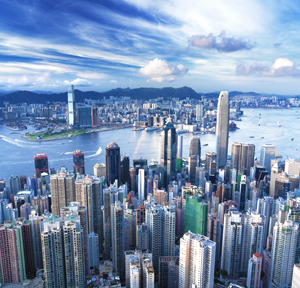Legal
Hong Kong’s Richest Man To Help Choose City’s Next Top Official

Hong Kong's next leader will inherit a stuttering economy, house prices which have soared 70 per cent in three years and a government with record-low approval ratings.
Li Ka-shing,
the richest man in Hong Kong, will be part of a committee who
will help choose
a replacement for retiring current chief Donald
Tsang, according to Bloomberg, citing a
government statement.
Li, along with HSBC
Holdings banker Peter Wong and actor
Stephen Chow, will join a 1,200-member election committee, chosen
by the
government that will pick the city’s new leader in March,
according to a
government website quoted by the newsire. Tsang steps down in
June after seven years leading the city. He has steadily lost
popularity in local opinion polls.
Of the 1,200 committee members, 91 will be representatives from
China’s
National People’s Congress and the Chinese People’s Political
Consultative
Conference, the nation’s top political advisory body. Hong Kong
lawmakers are guaranteed seats. The rest comes from district
councils, religious groups and industry
sectors including real estate and finance.
Other committee members include Lee
Shau Kee, founder of Henderson Land
Development, Hang Seng Bank chief executive officer Margaret
Leung and other
executives, sparking criticism the panel isn’t representative of
a city with
Asia’s widest rich- poor gap, according to Bloomberg. The
city-state has the widest
wealth gap in Asia, according to a report by the United
Nations in 2008.
With 3,200 ultra high net worth individuals (those with $30 million in liquid assets or more) who have a total wealth of $500 billion, packed into just over 1,000 kilometres squared, it is one of the densest billionaire populations in the world.
Whoever becomes the next leader of the former British colony does not have an easy job. Home to seven million people, Hong Kong is suffering from a stagnant economy, house prices which have soared 70 per cent in three years and a government with record-low approval ratings.
Hong Kong's GDP expanded just 0.1 per cent in the third quarter of 2011 over the previous quarter. Historically, from 1990 until 2011, Hong Kong's average quarterly GDP growth was 1.02 percent reaching an historical high of 6.30 percent in September of 2003. Hong Kong has a free market economy highly reliant on international trade and finance, which has left it heavily exposed to the fallout of the global financial crisis.